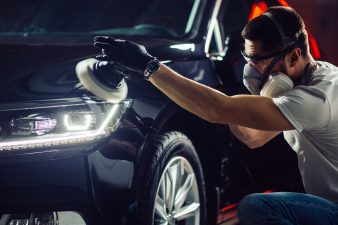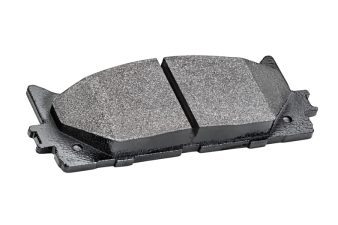F-150 vs Silverado: A Comprehensive Comparison
Auction Cars /When it comes to full-size pickup trucks, the Ford f-150 vs silverado are two of the most popular options on the market. Both vehicles offer a range of features, capabilities, and styles that appeal to various consumers. In this article, we’ll delve deep into the comparisons between the Ford F-150 and the Chevrolet Silverado, examining their performance, interior features, safety ratings, pricing, and more.
Overview of the Ford F-150
History and Evolution
The Ford F-150 has been a staple in the pickup truck market since its introduction in 1948. Over the decades, it has undergone significant transformations to meet the needs of consumers. The F-150 has maintained its reputation for durability, capability, and performance, making it a favorite among truck enthusiasts.
Key Features
The latest models of the F-150 come equipped with an array of advanced technologies and features. Key highlights include:
- Engine Options: The F-150 offers a range of engines, from a fuel-efficient V6 to a powerful V8, catering to different performance needs.
- Towing Capacity: With impressive towing capabilities, the F-150 can handle heavy loads with ease, making it suitable for both work and recreation.
- Interior Comfort: The cabin is designed for comfort, featuring high-quality materials and a spacious layout.
Overview of the Chevrolet Silverado
History and Evolution
The Chevrolet Silverado has been a major player in the full-size pickup market since its debut in 1998. Known for its rugged build and reliability, the Silverado has earned a loyal following. Over the years, it has also seen numerous upgrades in terms of design and technology.
Key Features
The Chevrolet Silverado stands out with its own set of features, including:
- Variety of Configurations: Available in multiple trims and bed lengths, the Silverado allows buyers to customize their trucks according to their specific needs.
- Powerful Engines: Like the F-150, the Silverado offers a range of engine choices, from efficient options to high-performance engines for heavy-duty towing.
- User-Friendly Technology: The Silverado is equipped with an intuitive infotainment system, making it easy for drivers to stay connected.
Performance Comparison
Engine Options
Both the F-150 and Silverado offer a range of engines designed to suit different performance needs.
- Ford F-150 Engines: The latest F-150 models come with various engines, including a turbocharged V6, a traditional V8, and even a hybrid option for those looking to maximize fuel efficiency.
- Chevrolet Silverado Engines: Similarly, the Silverado offers multiple engine configurations, including a turbocharged four-cylinder, a V8 option, and a powerful diesel engine for enhanced towing capabilities.
Towing Capacity
When comparing towing capacities, both trucks excel, but there are slight differences:
- F-150 Towing Capacity: The Ford F-150 is known for its impressive towing capabilities, often exceeding 14,000 pounds, depending on the configuration.
- Silverado Towing Capacity: The Chevrolet Silverado also boasts a strong towing capacity, with some models reaching up to 13,400 pounds.
Fuel Efficiency
Fuel efficiency is a critical factor for many truck buyers:
- F-150 Fuel Economy: The F-150’s hybrid option offers excellent fuel economy, reaching up to 24 MPG in the city and 24 MPG on the highway.
- Silverado Fuel Economy: The Silverado’s fuel-efficient options also perform well, particularly the four-cylinder turbo model, which can achieve similar numbers.
Interior and Comfort
Design and Materials
The interior of both trucks is designed for comfort and utility, but they each have their unique appeal:
- F-150 Interior: The F-150’s interior combines ruggedness with modern styling, featuring high-quality materials and a user-friendly layout.
- Silverado Interior: The Silverado’s cabin emphasizes functionality, with a straightforward design and durable materials suited for heavy use.
Technology and Infotainment
In today’s market, technology plays a vital role in consumer decisions:
- F-150 Technology Features: The Ford F-150 comes equipped with Ford’s SYNC infotainment system, offering smartphone integration, navigation, and advanced safety features.
- Silverado Technology Features: The Chevrolet Silverado includes the Chevrolet Infotainment system, which provides similar functionalities, ensuring drivers stay connected on the road.
Safety Ratings
Crash Test Ratings
Safety is paramount for truck buyers, and both the F-150 and Silverado have performed well in crash tests:
- F-150 Safety Ratings: The F-150 has received high safety ratings from organizations like the National Highway Traffic Safety Administration (NHTSA) and the Insurance Institute for Highway Safety (IIHS).
- Silverado Safety Ratings: The Silverado also boasts impressive safety ratings, with numerous available driver-assist technologies enhancing overall safety.
Driver-Assistance Features
Both trucks are equipped with various driver-assistance features:
- F-150 Features: The F-150 includes adaptive cruise control, lane-keeping assist, and automated emergency braking.
- Silverado Features: The Silverado offers similar features, including forward collision alert and rear cross-traffic alert, providing drivers with peace of mind.
Pricing and Value
Base Prices
Pricing can significantly influence buying decisions, and both trucks offer competitive base prices:
- F-150 Pricing: The base model of the F-150 typically







